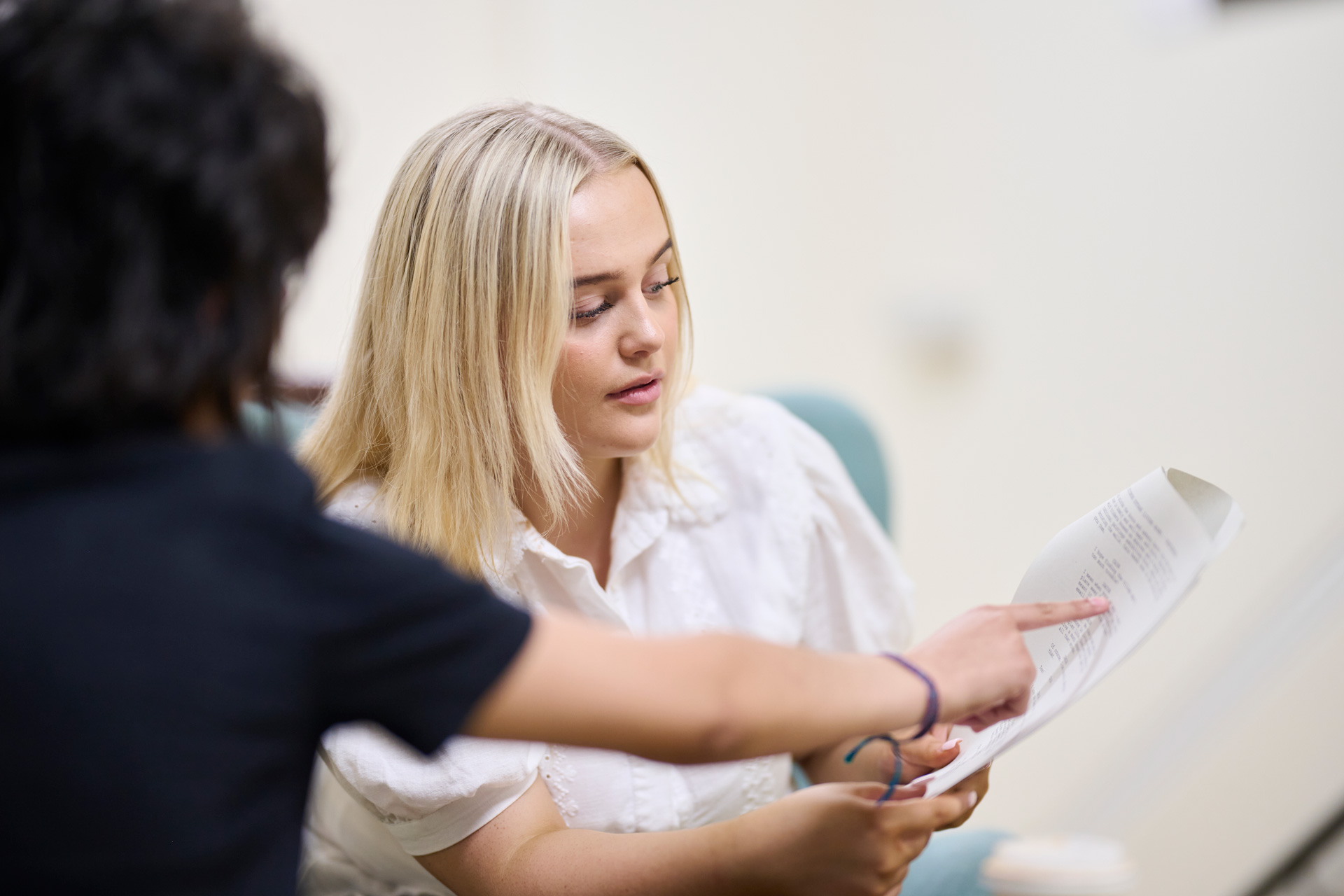Student Support
The Student Experience Team offers a professional, confidential, and free service to all Central Film School students.

Student Mentors
Students can support one another by volunteering as Mentors in our school’s Mentoring Programme.
The programme is designed to help students who may experience particular difficulty within Higher Education, and give them the chance to get to grips with their course better.
The Mentor programme can help improve both academic and social confidence immensely.
Counselling is a form of talking therapy and our experienced, professional counsellor can help you to develop a better understanding of yourself and others in a quiet, confidential and non-judgmental way.
The counselling service is free and available to any student enrolled with Central Film School. With no referral necessary, you can apply directly, and in confidence, via the self-referral form in the Student Experience Hub.
You can choose to meet the counsellor in person, online via Google Meet or by phone and we strive to fit appointment times around class and project-work schedules.

Other Sources of Support
If you need help with anything affecting your studies or student life, our Student Support team can help directly or point you to the right service. We can support with:
-
Attendance concerns
-
Extensions / mitigating circumstances for coursework and assessments
We aim to ensure that the appropriate adjustments are in place. To notify us about any disability or long-term condition you might have, please email studentservices@centralfilmschool.com
Our classes are led by industry professionals and you can arrange to meet with an instructor for extra help and support. You may want advice and support for an assignment, general guidance about a topic that interests you, or technical advice for your practical work
Each student is also allocated to a personal tutor to assist with overall learning and is encouraged to keep in touch on a regular basis to help stay on track.
In addition there is our newly refurbished library, Bertha DocHouse archive and our Virtual Learning Environment (VLE). These provide important course information, support for academic writing, advice on networking, and all the other resources you will need while studying with us.
If you are in danger in the UK and require immediate help or if you require urgent medical or mental health help call the emergency services on 999. The operator will connect you to either the ambulance, police, fire department or coastguard.
For urgent mental health help when it’s not life-threatening, call NHS 111 (24/7 in England) or use 111 online.
Your local GP (General Practitioner's) Surgery - find your nearest surgery here
Other organisations you can contact:
Select a heading to view more details.
Disabled Student Allowance
Disabled Students’ Allowances (DSA) help eligible UK-domiciled students with the additional study costs that arise from a disability, long-term health condition, mental-health condition or specific learning difficulty.
DSA is needs-assessed and non-means-tested and can cover specialist equipment, non-medical help, course-related travel, and other disability-related study costs (it doesn’t cover standard costs all students have).
In England, the 2025/26 cap is up to £27,783 per year for support (travel costs are funded separately), with similar schemes run by Wales, Scotland and Northern Ireland. International students are usually not eligible.
If you receive an NHS bursary (e.g., for certain medical/dental years), you apply for DSA through NHSBSA instead of Student Finance.
-
Single DSA allowance (excl. travel): up to £27,783 per year for all approved support (equipment, NMH, software, etc.). GOV.UK
-
Travel costs are funded separately and aren’t capped by that maximum (subject to DSA rules).
-
If a new computer is approved, you must pay the first £200 toward it.
-
DSA covers disability-related study costs only (not standard items like ordinary textbooks).
If you are a student from Wales, Scotland, or Northern Ireland: DSA limits and processes differ, please check the latest guidance from Student Finance Wales, SAAS (Scotland), or Student Finance NI for current figures.
How to apply?
Apply early. If you think you might be eligible, apply before your course starts (or as soon as possible) so support can be in place from day one
England (Student Finance England)
-
If you’re also applying for other student finance, start your DSA application from your Student Finance England online account.
-
If you only want DSA (no other student finance), apply using the DSA1 form (GOV.UK).
-
Send evidence with your application (e.g., a GP/consultant letter, audiology report, or an educational psychologist/specialist teacher report for SpLD). Make sure to keep a copy, as you will require this later.
-
When your application is reviewed, you’ll be invited to book a DSA needs assessment. This is not a test, it’s a conversation about how your condition affects study and what support would help. You’ll receive a report, and Student Finance will confirm what’s approved and how to arrange it.
Wales / Scotland / Northern Ireland
Processes and allowance caps differ. Please check the latest guidance from Student Finance Wales, SAAS (Scotland), or Student Finance NI for current forms, caps, and timelines.
Who DSA is for?
UK-domiciled students with a disability, long-term health condition, mental-health condition, or specific learning difficulty whose condition creates additional study costs. DSA is needs-assessed and not means-tested.
Apart from Disabled Students’ Allowances (DSA), additional help may be available depending on your circumstances. The information below is for general guidance; always check the latest guidance with the relevant provider
-
Snowdon Trust – provides grants for disability-related study costs in higher education. Application cycles vary year to year; see Snowdon Trust for current status.
-
Motability – can assist eligible disabled people lease a vehicle or powered wheelchair. The Motability Foundation also offers individual grants in some cases.
-
Access to Work - a government support scheme for paid employment that is not covered by your employer making reasonable adjustments. This can provide help such as specialist aids, support workers and travel to work; please note that it doesn’t fund course study costs covered by DSA.
For further personal disability benefits and advice, see GOV.UK.
Select a heading to view more details.
Have a question?
If you’d like to know more about our courses, or have any other questions, please fill in the form and a member of our Student Recruitment & Admissions Team will get back to you shortly.

